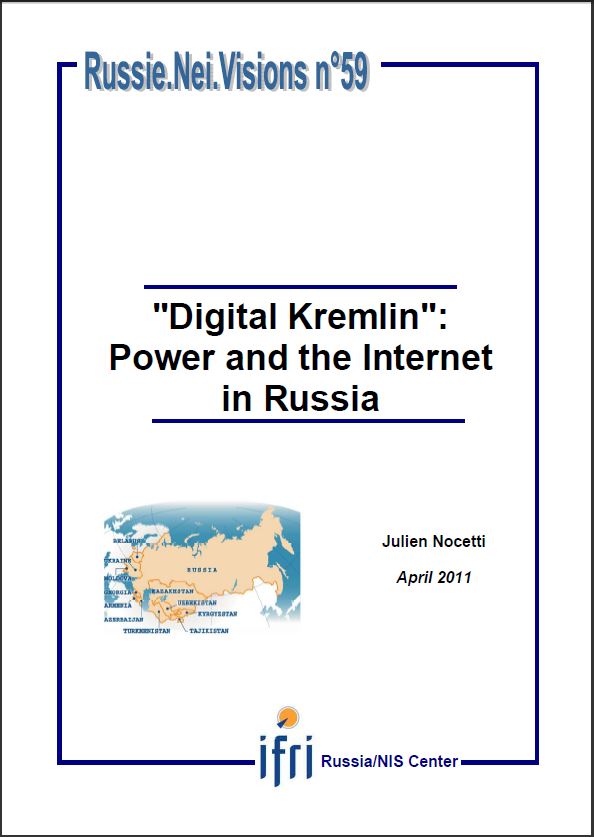"Digital Kremlin": Power and the Internet in Russia

The Russian Internet, which has undergone considerable development in the last decade, remains subject to constant scrutiny from the Kremlin. Digital technology has posed a challenge to the governance and political legitimacy of the ruling class, which has been anticipated by President Medvedev.
In a bid for technological independence from the major information technology players (American firms for the most part), the Russian government is seeking to fragment the web to extract from it a Russian component, facilitating the establishment of subtle state regulation. This "russification" of the web ties the private sector closely to state initiatives, and will be something to watch carefully in the run-up to presidential elections in 2012.
Download the full analysis
This page contains only a summary of our work. If you would like to have access to all the information from our research on the subject, you can download the full version in PDF format.
"Digital Kremlin": Power and the Internet in Russia
Related centers and programs
Discover our other research centers and programsFind out more
Discover all our analysesThe Caspian Sea as an Emerging Energy Hub : Potentials and Limitations
This report analyzes the prospects of the Caspian Sea region — and its key actors except for Russia and Iran — becoming an important energy hub serving the needs of the European Union (EU).
The European Union's Strategic Test in Georgia
The political crisis brewing in Georgia is of an existential nature for the country. What is at stake is Georgia's future as a democratic and sovereign European nation (EU).
Commanders of Putin's Long War: Purged, Reshuffled and Disgruntled
The trend of reshuffling the Russian top military command in the course of a fast-evolving and far from successful war has progressed unevenly both across the Armed Forces’ structures and in time. The rationale for and timing of the abrupt cadre decisions made by Commander-in-Chief Putin often defy logical explanation, and the rare official clarifications are no more informative than the usual information blackout.
Russian Military Manpower After Two and a Half Years of War in Ukraine
In addition to a military victory in Ukraine, the Russian leadership is planning to build up sizable troop formations for a possible conflict with NATO in the Baltic region and the Kola Peninsula. In particular, current plans aim for the military manpower to grow by about 350,000, reaching a total of 1.5 million soldiers and commanders. In the context of the current conflict in Ukraine, this cannot be accomplished without a new wave of mass mobilization.











